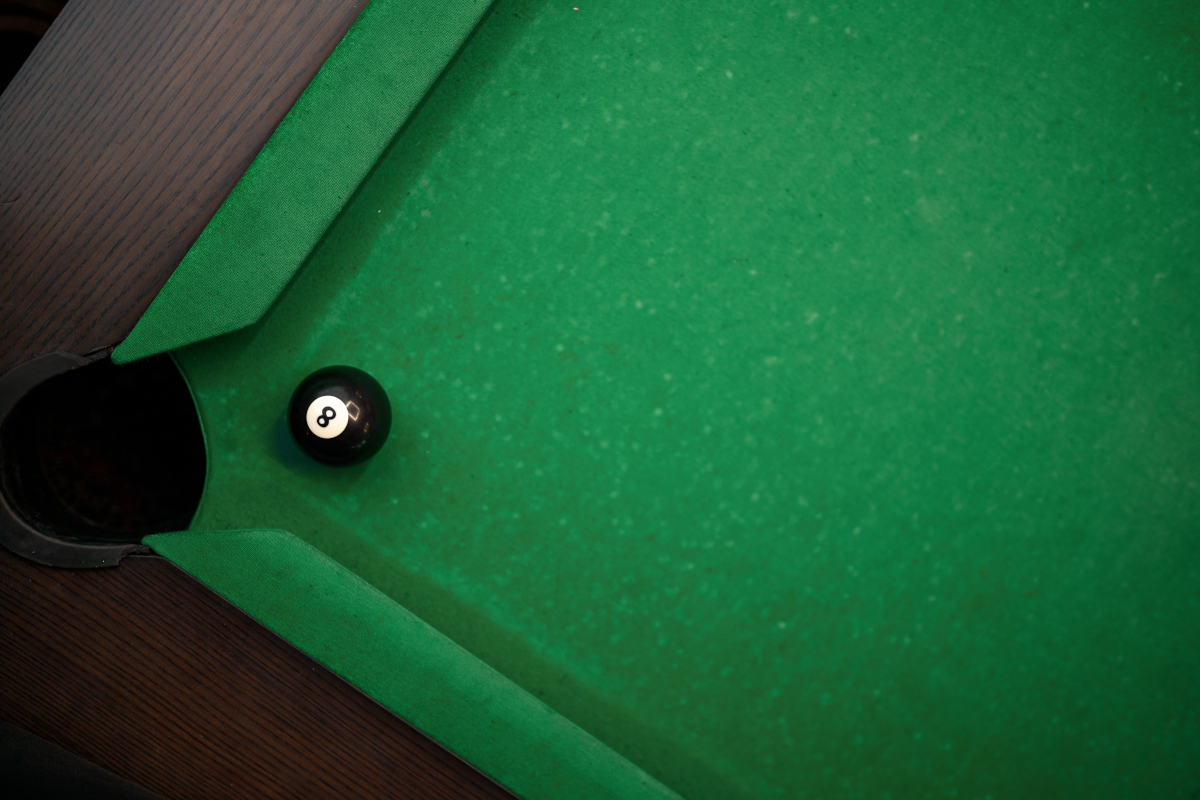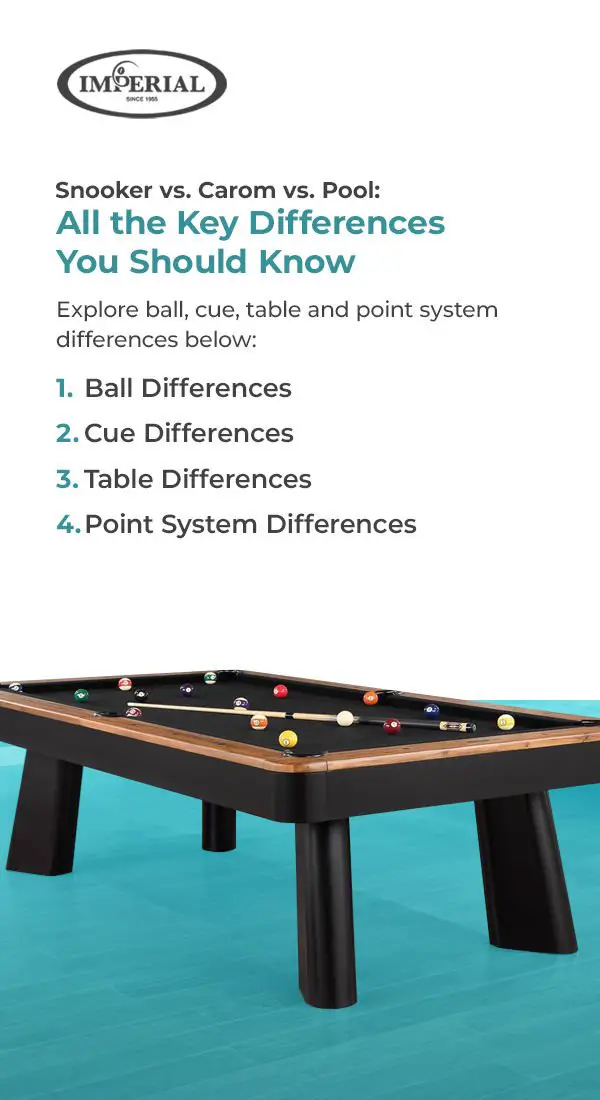Snooker & pool are distinct cue sports, differing mainly in table size, ball configuration, & rules. Snooker is played on a larger table (12×6 feet) with smaller balls & 15 red balls, emphasizing strategy & precision, whereas pool is typically played on a 7, 8, or 9-foot table with larger balls. The games also differ in gameplay; snooker involves potting balls in a specific sequence To accumulate points, while pool focuses on pocketing all of one’s designated balls. Thus, while both games share cues & tables, their mechanics & objectives set them apart significantly.
Is Snooker the Same as Pool? Exploring the Differences. Curious about snooker & pool? Discover their key differences in this friendly guide! Learn which game suits you better & enjoy your next match more!
Is Snooker The Same as Pool? Exploring The Differences
Understanding Snooker
Snooker originated within 19th century in British India. Game features a rectangular table covered with green baize, along with six pockets. Players use a cue stick, employing skill & precision, aiming at 21 balls: 15 red balls, six colored balls, plus a white cue ball. Each colored ball carries different point values, bringing strategy into gameplay. Competitions often culminate in intense matches, showcasing professional players’ talents.
Throughout my journey playing snooker, I developed a deeper appreciation for tactics & strategy. Each match presents new challenges, pushing creativity & adaptability. Engaging with fellow enthusiasts provided valuable insights about nuances within this captivating sport.
Defining Pool
Pool, unlike snooker, evolved in America. This game encompasses several variations, with Eight-Ball & Nine-Ball being popular choices. A standard pool table typically measures 7 To 9 feet long, featuring pockets along sides. Players aim at 15 object balls, divided into solid & striped categories, plus The cue ball. Pool matches usually focus on quick, fast-paced action compared To snooker.
Despite different origins, pool has garnered massive global popularity. Players often gather in bars, clubs, or specialized pool halls, showcasing their skills. Initially, I found pool’s accessibility & social elements appealing, making experiences enjoyable.
Similarities Between Snooker & Pool
Both games share some core elements, primarily involving pockets & cue balls. Players utilize cues To strike balls into pockets, emphasizing skillful shots. Additionally, both sports have informal & competitive formats, fostering community amongst passionate players. Many individuals transition between games, drawn by similarities while enjoying distinct aspects of each experience.
For instance, examining rules can lead one toward an understanding of strategic gameplay. A player familiar with pool might grasp snooker concepts more swiftly by linking recognizable tactics. Players also benefit from acquiring techniques across both sports, enhancing overall skill sets. More resources about these games can be found here.
Key Differences Between Snooker & Pool
A notable distinction between snooker & pool lies within table dimensions. Snooker tables generally measure 12 feet by 6 feet, while pool tables usually vary. This size difference leads To variations in gameplay, affecting players’ approaches during a match. Greater size of snooker tables promotes longer shots, demanding strategic planning & precision.
Another difference arises from scoring systems. In snooker, players earn points based on color & type of balls pocketed, encouraging tactical shot selection. Conversely, in pool, players either aim To pocket all of their designated balls or strike a specific ball followed by pocketing. Understanding these differences can enhance appreciation for either game.
Equipment Used in Snooker & Pool
Equipment plays a vital role in both sports, influencing players’ performances. In snooker, cues typically measure longer than those utilized in pool, aiding precision for longer shots. Additionally, tables feature different cloth types, with snooker tables having smoother surfaces. These equipment choices often contribute significantly toward gameplay quality, leading skilled individuals toward success.
Players also employ specific chalk, which enhances friction between cue & ball, aiding in control. Such attention toward detail reflects dedication within both snooker & pool communities. Novices learn quickly about equipment’s significance during matches, impacting overall performance.
Styles of Play
Snooker emphasizes a more strategic approach, requiring players To engage mentally with opponents. Longer frames & higher point thresholds demand careful planning & execution, making each shot matter. Players often assess layouts carefully before taking action, fostering patience & analytical thinking.
In contrast, pool typically promotes a faster pace, favoring aggressive tactics. Quick matches with shorter point systems encourage players To adapt swiftly, executing shots under pressure. This dynamic style appeals To many individuals drawn towards a lively atmosphere within bars or gaming halls.
Popular Variations of Each Game
Within snooker, variations like Chinese & British snooker exist. Each variation incorporates unique rules, enhancing diversity among gameplay. Chinese snooker utilizes smaller balls & different table dimensions, attracting players with innovative challenges.
Meanwhile, pool encompasses several popular styles, such as Eight-Ball & Nine-Ball. Each variation carries distinct rules concerning point accumulation & ball categories, providing unique experiences tailored toward various skill levels. Exploring these variations enables players seeking novel gameplay experiences beyond traditional formats.
Global Reach & Cultural Impact
Snooker enjoys significant cultural prominence, particularly in UK & parts of Europe. Media broadcasts often feature prestigious tournaments, showcasing talents of professional players. Match formats emphasize strategic intricacies alongside captivating storylines, fostering fan engagement over time.
Conversely, pool thrives within diverse social environments across various regions. Players gather within public venues, encouraging casual engagement amongst friends. Global tournaments, such as WPA World Nine-ball Championship, capture imaginations, driving interest across differing style preferences.
Feature Comparison
- 🎱 Different tables sizes
- 🎱 Unique scoring systems
- 🎱 Equipment differences
- 🎱 Varied styles of play
- 🎱 Global popularity
Comparative Analysis Table
| Feature | Snooker | Pool |
|---|---|---|
| Table Size | 12 ft x 6 ft 🏓 | 7 ft – 9 ft 🏓 |
| Number of Balls | 22 Balls 🎱 | 16 Balls 🎱 |
| Usual Play Style | Strategic ⏳ | Fast-Paced ⏳ |
Conclusion of Personal Experience
Experiences within both snooker & pool have significantly influenced personal growth. Engaging with diverse communities reinforced learnings while developing social skills. Transitioning between games reveals unique aspects, enriching overall appreciation for cue sports. Further exploration regarding historical contexts entails visiting this resource.
Curious about snooker & pool? Discover their key differences in this friendly guide! Learn which game suits you better & enjoy your next match more!

What are The main differences in The playing surface of snooker & pool?
The playing surface of snooker is larger than that of pool, typically measuring 12 feet by 6 feet, compared To pool tables that usually come in sizes like 8 feet or 9 feet. Snooker tables also have smaller pockets, making The game more challenging.
How many balls are used in snooker compared To pool?
In snooker, 22 balls are used: 15 red balls, 6 colored balls, & one white cue ball. Pool, on The other hand, uses a set of 16 balls, including 7 stripes, 7 solids, & one 8-ball, along with The white cue ball.
What are The rules regarding scoring in snooker & pool?
Scoring in snooker is based on potting balls of different values, with red balls worth 1 point each & colored balls ranging from 2 To 7 points. In pool, players aim To pocket their designated balls (stripes or solids) & then The 8-ball To win, with scoring often being more straightforward than in snooker.
How does The cue ball’s role differ in snooker & pool?
In both games, The cue ball is used To strike other balls; however, in snooker, players must strike The lowest value ball on The table first. In pool, players can strike any ball that belongs To their group after The initial break.
What type of cues are used in snooker versus pool?
Snooker cues are generally longer & thinner than pool cues, allowing for more precision in shots. Pool cues are shorter & wider, suitable for The different playing style & requirements of pool.
What is The objective of snooker compared To pool?
In snooker, The objective is To score more points than The opponent by potting balls in The correct sequence. In pool, The goal is To be The first player To pocket all of your designated balls & then The 8-ball To win The game.
Are there different types of pool games, & how do they compare To snooker?
Yes, there are various types of pool games, such as Eight-ball, Nine-ball, & Ten-ball, each with slightly different rules & objectives. Snooker, however, has a standardized set of rules & gameplay that distinguishes it from The various forms of pool.
What is The typical number of players in a snooker game versus a pool game?
Snooker is usually played with two players or two teams, while pool can be played in similar formats, but also accommodates more players depending on The game variant, especially in informal settings.
What are The common strategies used in snooker & pool?
In snooker, strategy often involves defensive play & positioning for The next shot, focusing on maximizing points. In pool, players often use more aggressive strategies To quickly pocket their balls & hinder their opponents’ chances.
How does The cultural perception of snooker differ from that of pool?
Snooker is often perceived as a game of skill & precision, associated with a more formal atmosphere, while pool is commonly seen as a casual & social game, often played in bars & recreational settings.
Conclusion
In summary, while snooker & pool share similarities, they are quite different in many aspects. Snooker has larger tables, smaller pockets, & more balls, focusing on skill & strategy. On The other hand, pool is often played on smaller tables with easier shots, making it more accessible & fast-paced. Understanding these differences can enhance your appreciation for both games. Whether you prefer The tactical depth of snooker or The lively fun of pool, each game has its unique charm. So grab a cue, find a table, & enjoy The friendly rivalry of these classic billiard games!











